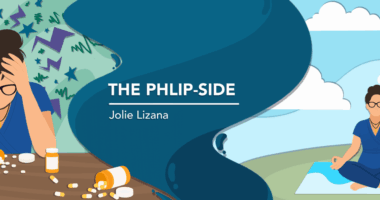How to Benefit by Playing Devil’s Advocate in the Fight Against PH

Living with the physical health challenges that pulmonary hypertension (PH) places on a patient is hard enough, but the disease can also wreak havoc on mental wellness.
There really is no opting out of PH mind games when life is the prize you have your eye on. Mortality statistics, treatment options, side effect probabilities, drastic life changes — the list of potential threats to quality of life can be overwhelming.
Another emotional factor both patients and caregivers face is the habit of internalizing the unfair assumptions and accusations made by people with little understanding of PH. It’s hurtful when strangers, acquaintances, and even family members and friends question or doubt us.
Dealing with people like this is a popular topic on the Pulmonary Hypertension News Forums. I’ve often responded by sharing a few of the painfully memorable encounters I’ve had with PH outsiders when my son Cullen had the disease.
Swapping emotional war stories can be comforting, but lately, I’ve been thinking about what else I can share that might offer a proactive way of dealing with challenging personalities.
My advice might not be appealing, but hear me out.
Turn the mind game around.
My son appeared to be a healthy child until he turned 6 and began complaining of shortness of breath, a raspy cough, and chest pains. Doctors misdiagnosed Cullen for two years with various conditions, including croup, asthma, and panic attacks. Even his dad and I were clueless about what else it could be.
But as time passed and Cullen’s symptoms worsened, it became apparent that our son, who appeared healthy on the outside, was struggling with something serious on the inside. It was heartbreaking when a right-heart catheterization confirmed PH, but the rare diagnosis made sense.
Considering how long it took to diagnose Cullen, even with unwavering advocacy from his parents, you can imagine the challenge of helping others understand how such a healthy looking child could be so sick.
It was frustrating when people constantly told us, “But he looks so healthy!” It was even harder to accept the assessment as a well-meaning one. It wasn’t until I stepped back and looked at Cullen from their limited perspective that I recognized the compassion behind their words. They didn’t want Cullen to be sick, so it was easier to gloss over the rest of the horrible truth.
I was once like them until I witnessed many PH episodes, pored over test results, and viewed pictures of his declining heart and lungs. I learned the hard way that you can’t always judge a book by its cover. I believed my son was unwell, but I had no idea how sick he was until I saw the proof.
Even then, I still had moments of denial. When a PH specialist handed us a handicapped parking placard application, I questioned why Cullen would need one. I had a preconceived notion of what handicapped “looks like.” It was worth remembering my ignorance whenever someone asked about my use of the handicapped placard on behalf of my healthy looking son. Although I don’t recall ever putting someone on the spot for using an accessible parking space, I can understand why someone might. People who put their foot in their mouth often have their hearts in the right place.
What about people who say something so incredibly hurtful that there is no way to relate to their feelings at all? Well, have you ever said something that came out in a way you didn’t mean?
This can happen to the best of people, especially around difficult topics like a potentially life-threatening illness. Believe it or not, giving people the benefit of the doubt can lighten the impact those cringey comments will have on you.
PH education is your best weapon.
Playing devil’s advocate doesn’t mean letting repeat verbal offenders, well-meaning naysayers, and parking lot complainers get off without a hitch. Seeing things from their perspective can help calm you before hitting them with your best line of defense: PH education.
The PH Association website offers many free resources you can download and share. My family was quick to share the PH wallet fact card and additional information with those who seemed open to learning more than PH basics.
I also encourage you to invite family members and caregivers to join the PH forums, where we will answer their questions and concerns with the utmost patience and compassion. We can help you by helping them understand the ins and outs of PH.
Note: Pulmonary Hypertension News is strictly a news and information website about the disease. It does not provide medical advice, diagnosis, or treatment. This content is not intended to be a substitute for professional medical advice, diagnosis, or treatment. Always seek the advice of your physician or other qualified health provider with any questions you may have regarding a medical condition. Never disregard professional medical advice or delay in seeking it because of something you have read on this website. The opinions expressed in this column are not those of Pulmonary Hypertension News or its parent company, Bionews, and are intended to spark discussion about issues pertaining to pulmonary hypertension.









Leave a comment
Fill in the required fields to post. Your email address will not be published.